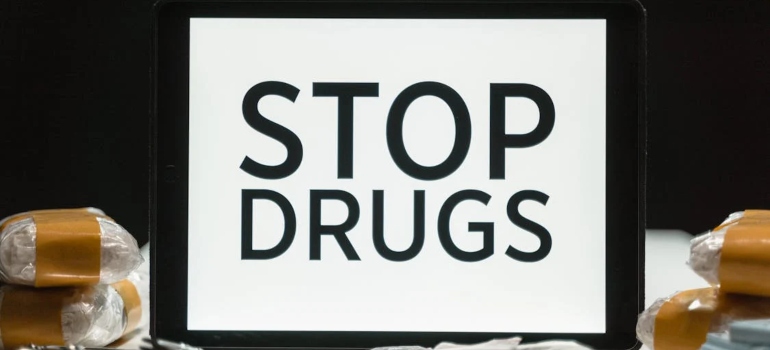Beginning the journey of overcoming addiction is an enormous step towards taking ownership of your life and health. Medication-assisted treatment (MAT), which provides treatment for managing cravings and symptoms of withdrawal, is crucial in this process for a significant percentage of people. Still, there are barriers to staying sober. Therefore, the likelihood of relapsing continues to be a cause for concern. At Harmony Ridge Recovery Center, we go into much more detail on the critical subject of preventing relapse while undergoing treatment with medications. We examine the various ways that enable people to protect their sobriety and sustain long-term recovery. This includes comprehending the fundamentals of relapse prevention, recognizing triggers, creating coping mechanisms, and utilizing support networks. If you or someone you love struggles with remaining sober, do not hesitate to contact us today!
Open Communication in Healthcare
Having an open line of communication with medical professionals is crucial for treating substance misuse and resolving related problems. To provide optimal treatment, patients need to feel relaxed and be open to talking about their struggles with addiction. Potential triggers should be discussed as well. The open discussion makes it achievable for medical professionals to customize treatment programs properly. In this way, medical professionals meet individual needs and lower the chance of relapse. In addition, it creates a nurturing atmosphere where patients experience empowerment and compassion. By proactively sharing their struggles and seeking support, patients can access necessary resources and interventions early on. This discussion can identify underlying problems that cause substance abuse and help the patients understand how to prevent a drug relapse. Furthermore, open communication establishes trust, guarantees patients will follow prescribed therapies, and makes them feel at ease when discussing difficulties.

Tips for Following Medication Schedules, Supporting Long-Term Health, and Preventing Relapse While Undergoing Treatment with Medications
Sustaining health conditions and preventing relapse when taking prescription medications require strict compliance with treatment plans. Carefully following the dosage regimens guarantees the efficacy of the treatments. It also lowers the possibility of complications. Alarm clocks or reminders you can set on your smartphone are a good idea to help you schedule medication adherence. Organizing and labeling your pill containers can also be helpful. Including a reliable support person, such as a friend or family member, might help with extra motivation. Maintaining a medicine journal to monitor regimens can be equally beneficial. Furthermore, consistency can be improved by integrating your medication schedule with daily activities, such as lunchtime. Following advice from your doctor is also important in preventing relapse while undergoing treatment with medications. Implementing these suggestions will build a plan perfect for your needs.
Identifying Relapse Triggers: Strategies for Coping with Stress, Social Situations, and Environmental Cues
Recognizing triggers is crucial to maintaining sobriety while preventing relapse. Stress, social circumstances, and external factors that could result in cravings or undesirable feelings are common triggers. Create personalized approaches, like avoiding high-risk situations, through stress-reduction techniques. Reaching out and supporting social networks can also be valuable for handling these triggers successfully. Knowing yourself and practicing mindfulness are necessary for identifying early relapse warning signs. You may preserve awareness of your thoughts and responses by practicing mindfulness, writing, and regular self-reflection. Relapse can be prevented by proactively addressing these warning signs. Your dedication to recovery can also be reinforced by creating a schedule and restrictions in social situations. Being aware and controlling your triggers will help you sustain long-term recovery. Therefore, mindfulness and self-awareness play crucial roles in recognizing early warning signs of relapse, which is vital for avoiding relapse while on prescribed drugs.

Engaging Family, Friends, and Peers for Encouragement and Accountability During Treatment
Building a solid support network provides the basis for effective therapy and lasting recovery. During difficult times, peers, family, and friends can offer support, reliability, and valuable help. A powerful support system keeps you strong and enthusiastic while offering a safety net in moments of crisis. Joining support groups, either in-person or online, will allow you to connect with inspirational people. Peer-rehabilitation networks and online platforms are excellent places to seek support and guidance. If none of these work for you, consider that motivational interviewing is always a good idea! Motivational interviewing is a counseling approach that will help you discover the inner drive to improve your behavior. It focuses on engaging clients to overcome their hesitation regarding change. By emphasizing empathy, active listening, and empowering clients to set their own goals, motivational interviewing fosters a supportive environment for sustainable behavior change.
Creating Healthy Coping Mechanisms: Techniques to Prevent Relapse While Undergoing Treatment with Medications
Dealing with relapse triggers can be exhausting and make you feel like you’re not trying hard enough. Emotional triggers such as loneliness, depression, and stress are always in the way of your recovery. However, building healthy coping skills is not impossible! Here are some healthy coping strategies that you can consider implementing:
- Meditation: develop inner awareness and resilience, which will counteract the negative effects of cravings
- Regular exercise boosts your mood and reduces stress levels by incorporating physical activity into your daily routine
- Stress management techniques: Face challenging situations with calmness and clarity by practicing deep breathing
- Engage in pleasurable activities: Prioritize activities that bring joy and fulfillment into your life
- Social support: create connections with friends, family, or support groups to share experiences, receive encouragement, and gain perspective
- Healthy distractions: distract your mind with activities like hobbies, reading, or spending time outdoors

Implementing Evidence-Based Relapse Prevention Strategies: Effective Strategies for Long-Term Recovery
Relapse can occasionally be difficult for people to understand, especially when a person is undergoing medical treatment. Even though unwanted, relapse is nothing to be ashamed of since it can happen to anyone. It’s important to seek help with the first signs of relapse. Developing a substance abuse relapse prevention plan has never been a problem! You learn about evidence-based approaches to support long-term sobriety and recovery at Harmony Ridge Recovery Center. Examining cognitive-behavioral therapy (CBT) strategies will assist you in recognizing and overcoming the negative thought patterns connected to relapse. We will also help you create a customized relapse prevention plan based on your coping strategies and triggers. Use mindfulness-based relapse prevention (MBRP) to develop healthier coping mechanisms and an improved understanding of cravings. You give yourself the power to overcome challenges and sustain sobriety by implementing these strategies daily.
When to Seek Professional Help for Overcoming Substance Abuse Challenges
Preventing relapse while undergoing treatment with medications and knowing when to get professional assistance is essential for lasting recovery. It is important to seek advice and support from doctors, addiction experts, or mental health specialists if you are facing cravings, relapses, or other challenges during treatment. By providing you with personal treatment plans and important resources, these experts assist you in navigating the challenges related to substance use disorders. Getting professional assistance can provide you with the skills and techniques you need to overcome obstacles and sustain long-term sobriety. Never be afraid to ask for expert help when you need it as you start the healing process. The first step towards achieving well-being is getting the support that you deserve. Our residential rehab program in West Virginia offers comprehensive care and support for people seeking recovery, promoting a fresh start and the development of healthy habits.

Tools and Techniques for Tracking Recovery Progress While Undergoing Treatment With Medications
As soon as you catch yourself even thinking about relapse, you should seek professional help to prevent such things from happening again. Remaining sober is hard and a long process, so there’s no need to feel bad. You only need more guidance than others, and that’s completely okay. So, what to do when you relapse and how to prevent it are the main questions here. Through tracking medication compliance, emotional changes, cravings for substances, and relapse triggers, you can keep track of your healing journey. One method to improve self-awareness and accountability is to keep a journal or use smartphone apps to document everyday events. These tools enable people to detect patterns and recognize achievements. Keeping a journal will help you process unwanted feelings if you struggle with relapse. Implementing these tools and techniques will help you monitor and understand your mood, leading to long-lasting recovery.
Celebrating Milestones
Preventing relapse while undergoing treatment with medications is a very important part of the recovery journey. Thus, celebrating milestones can greatly support this process. Recognizing achievements such as periods of sobriety, successful trigger handling, or progress in meeting treatment goals cultivates a sense of accomplishment and motivation. Celebrating these milestones makes their commitment to recovery even stronger and boosts their confidence in overcoming challenges. Emphasizing self-compassion, resilience, and being persistent, helps individuals understand that setbacks are a natural part of the journey and not a reflection of their worth or potential for success. Together with the appropriate use of medications, these positive reinforcements can reduce the risk of relapse by promoting a healthier mindset and stronger resolution. Therapists can guide people in balancing medication management with celebrating progress. In that way, they are creating a holistic approach that strengthens the mental and physical aspects of recovery.

The Ways We Can Celebrate Milestones
Celebrating milestones is very important to keep up with our motivation. There are very important achievements, such as periods of sobriety, successful coping with triggers, or progress in meeting treatment goals, and by all means, people should celebrate all that. Individuals can reward themselves with activities promoting well-being, such as a special meal, a day trip somewhere they have never been, or a hobby. Sharing milestones in a supportive environment can boost the sense of accomplishment and provide additional encouragement. You can also create a visual representation of progress, such as a milestone chart or a journal. Both can serve as a powerful reminder of how far one has come. Emphasizing self-compassion and resilience in these celebrations helps people internalize their successes and reinforces the belief that they can continue overcoming challenges.

The Power of Milestones, Therapy, and Powerful Coping Tools
To sum up, celebrating milestones is a powerful way to prevent relapse while undergoing treatment with medications. Recognizing and rewarding achievements, such as periods of sobriety and successful coping with triggers, makes you more committed and boosts your confidence. These celebrations can be personal, like indulging in a favorite hobby or sharing with your loved ones, thus boosting the sense of accomplishment. Creating visual progress trackers, like charts or journals, can serve as daily reminders of success. Acknowledging your success while in therapy is also empowering, and integrating these practices with self-compassion and resilience cultivates a positive mindset essential for overcoming setbacks. By mixing these celebratory methods with effective medication management, people create a holistic support system that addresses both mental and physical aspects of recovery. This all-encompassing approach strengthens resolve and provides continuous encouragement, significantly reducing the risk of relapse and promoting long-term healing and growth.
Reference:



